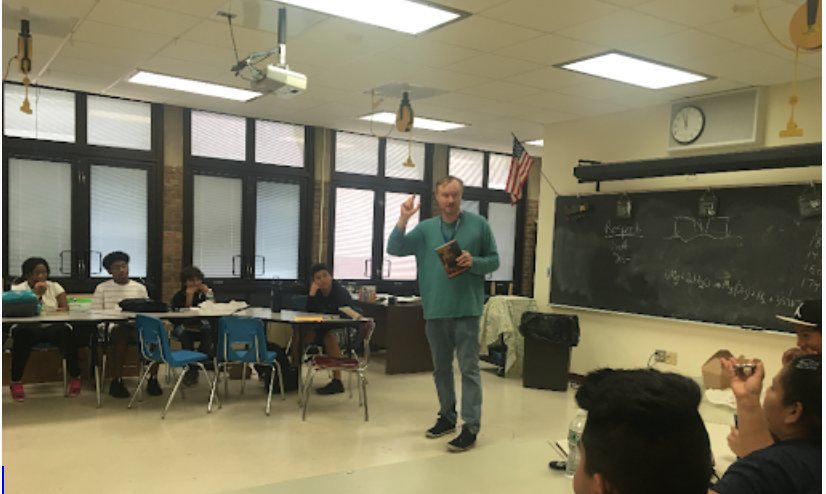PHS Profile: Mark Eastburn leads the classroom with passion and experience
March, 2021
Ever since he can recall, Mark Eastburn has always enjoyed being immersed in nature. In kindergarten, Eastburn was given the opportunity to take home the class pet turtle, kickstarting his passion for reptiles and science. Now a science teacher at PHS, Eastburn has succeeded in passing this interest on to countless students over his 20 years of teaching.
Prior to PHS, Eastburn taught science at Riverside Elementary School for seven years and Spanish for 10 years at Johnson Park. Although his father was a teacher, Eastburn’s first taste of teaching came unexpectedly. In 1998, fresh out of college, Eastburn decided to apply for the Peace Corps. He was assigned to a community in central Panama where he worked in agroforestry. As Eastburn sought solutions for poor land management practices in Panama, he found himself drawn to the schools.
“I saw [that] my most effective response … was to start teaching the younger students who weren’t set in their ways,” Eastburn said. “The adult farmers, some of them were … just like, ‘That’s the way I’ve always done it and that’s the way it’s always going to be for me.’”
Through educating children on sustainable agricultural practices, Eastburn realized he enjoyed giving back to the community. As a result, Eastburn decided to follow in his father’s footsteps, pursuing a career in education. While his first job was based solely on foreign language — teaching Spanish at Johnson Park — Eastburn never lost his love for science.
“Science has always been my passion,” Eastburn said. “Even when I was a Spanish teacher, I was trying to work as many science themes as I could into the Spanish language curriculum.”
Now a teacher at Princeton High School, Eastburn is one of three teachers who oversee the three-year Research Program. The goal of this class is to teach students how to read scientific papers and how to analyze complicated data sets in preparation for their own research projects, which are executed in the later years of the program.
“We’ve had several students present at the American Society of Plant Biologists, the Anthropological Society, and the American Physics Society,” Eastburn said. “That’s where students really get the opportunity to make connections with people in their field.”
Eastburn’s creativity and love for science transcend the school environment. Aside from being a teacher at the high school, Eastburn is also an author of science fiction and dystopian novels.
“I started getting ideas and stories in my head, and I was like, ‘No one’s ever going to know about these stories unless I write them down,’” Eastburn said.
Transferring his ideas onto paper, Eastburn initially self-published books. After joining the Society of Children’s Book Writers and Illustrators and gaining more experience as a writer, Eastburn published his first children’s chapter book, “Earning My Spots,” in 2016. His story features two boys who can shape-shift into animals as they pursue adventures together. As of now, Eastburn is in the process of writing two young adult novels that he hopes to publish soon.
Outside of school and writing, Eastburn enjoys photography and exploring nature with his family. During his excursions, Eastburn looks under cracks and crevices in hopes of finding new species of isopods to bring back to his classroom.
Although he has been able to pursue his passions, there have been setbacks along his journey. In 2016, Eastburn lost virtually everything after his house burned down in a fire. Without any hesitation, the Riverside community came together and supported him in any way they could. Later in 2020, when he lost his father, the Princeton community united again to support him.
“I really feel that … what’s gotten me through was the support from the Princeton community parents and students,” Eastburn said. “I definitely feel like a member of a community that appreciates me and I appreciate it.”
Eastburn hopes that, after PHS, his students will continue to explore their passions and use the skills taught in the Research program.
“My biggest reward [is] if they [can] carry those tools forward with them into their careers and into lives in general,” Eastburn said. “If they can do that, I’ve been successful, they ... instead of being just actors, they’re creators.”